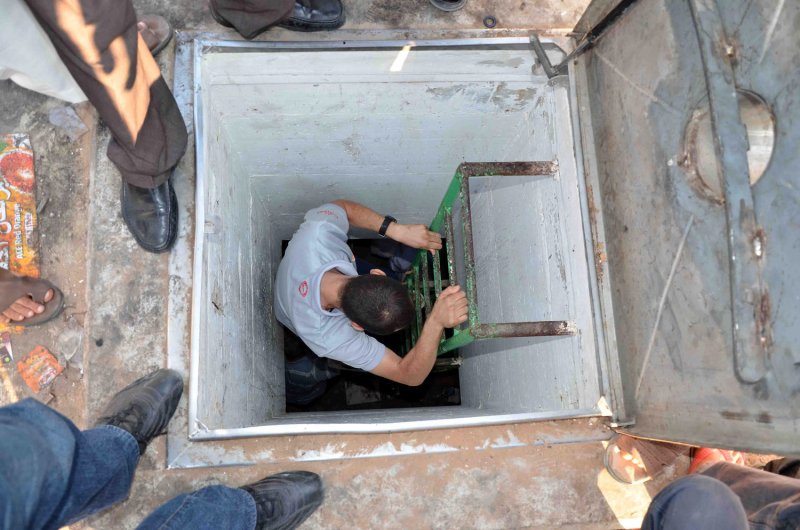1 of 4 | Libyans peers into an underground tunnel at inside of Baba al Azizia, Moammar Gaddafi's main military compound on August 26, 2011 in Tripoli, Libya. The main compound has turned into a tourist attraction and a symbol of Gaddafi's ousted regime. Numbers of Libyans are gathering to celebrate his downfall and to tour the compound which up until August 23, 2011 has been hidden from public view until the recent surge into Tripoli by rebel forces. UPI/Tarek Elframawy |
License Photo
TRIPOLI, Libya, Aug. 30 (UPI) -- A tour of an abandoned security unit in Tripoli showed how Moammar Gadhafi's regime tracked Libyans and the involvement of foreign firms in the surveillance.
People familiar with the situation told The Wall Street Journal Libyan officials discussed high-tech spying devices with several companies -- including Boeing's Narus unit, which makes Internet traffic monitoring products -- as they looked to increase Libya's existing monitoring operation.
A review of documents and interviews with knowledgeable sources indicated Libya sought sophisticated tools to control the encrypted online telephone service Skype, censor YouTube videos and prevent Libyans from disguising online activities, the Journal reported Tuesday.
Libya is one of several Middle Eastern and North African countries using high-end technologies purchased from foreign companies to tamp down dissent. Firms from the United States, Canada, Europe, China and elsewhere have helped regimes block Web sites, intercept e-mails and listen to phone conversations.
The Internet monitoring center in Tripoli was a key part of a broad surveillance system Gadhafi used to monitor his enemies.
"Narus does not comment on potential business ventures," a company spokeswoman said in a statement. "There have been no sales or deployments of Narus technology in Libya."
A representative of the French technology firm Bull SA declined to comment to the Journal.
Sale of such technology typically is permissible but manufacturers in some countries first must get special approval to export the high-tech interception devices, the Journal said.















